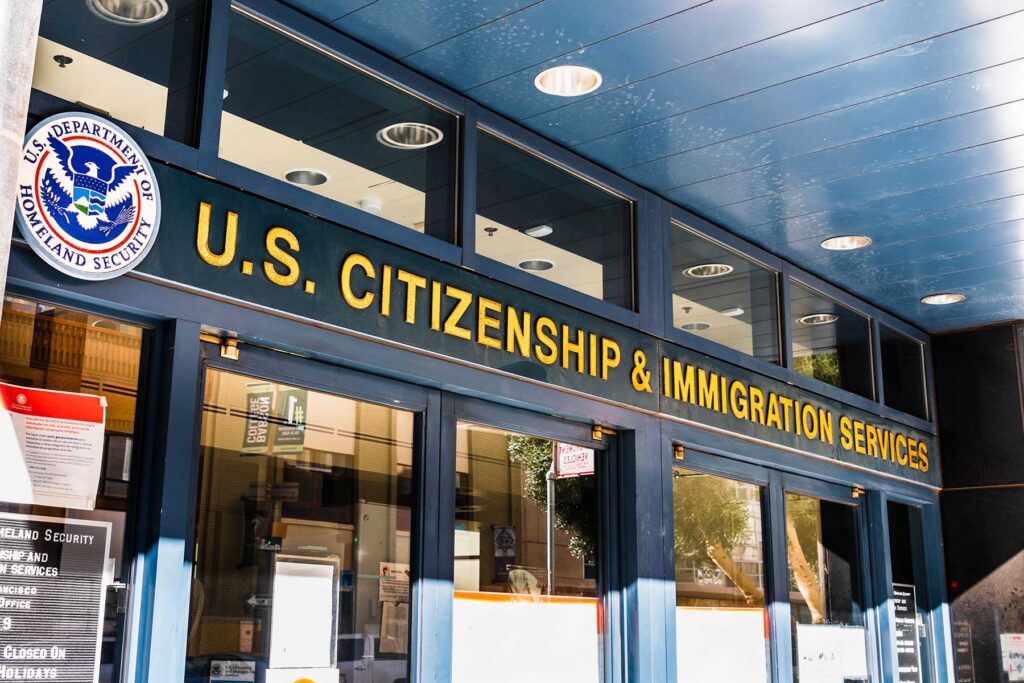During his electoral campaign, Donald Trump made immigration and border control a central focus. Now, as the winner of the U.S. presidential election for a second term, immigration remains a prominent issue.
In this context, many immigrants and their families are questioning how Trump’s policies will affect their future in the country. Trump has been clear about his strict approach to immigration control, and his recent proposals suggest a return to, and expansion of, policies from his previous administration that deeply impacted immigrant communities.
In this article, we explore Trump’s most significant immigration policies and their potential implications for immigrant families.
1. Continuing Border Wall Construction
During his first term, Trump prioritized building a wall along the U.S.-Mexico border. Despite legal and funding challenges, he managed to construct or upgrade over 450 miles of barriers, focusing on areas with the highest rates of illegal crossings.
2. “Remain in Mexico” Policy
The “Remain in Mexico” policy, officially known as the Migrant Protection Protocols (MPP), required asylum seekers to wait in Mexico while their cases were processed in the U.S. With Trump’s return, this policy could be reinstated, leaving thousands in vulnerable situations, exposed to violence and abuse in border regions.
3. Strengthening ICE and Increasing Deportations
During his administration, Trump expanded the scope of Immigration and Customs Enforcement (ICE), increasing workplace raids and deportations, particularly targeting immigrants with criminal records. His “zero tolerance” approach meant even minor infractions could lead to detention and deportation.
4. Public Charge Rule
Trump introduced the Public Charge Rule, making it harder for individuals deemed likely to rely on public assistance to obtain green cards or visas. While aimed at legal immigrants, the rule discouraged many families from accessing health and food assistance programs for fear of jeopardizing their immigration status.
5. Attempt to End DACA
Trump attempted to terminate the Deferred Action for Childhood Arrivals (DACA) program, creating uncertainty for Dreamers. Although the Supreme Court blocked his efforts, his administration’s actions destabilized the lives of many young immigrants who consider the U.S. their home. Renewed efforts to dismantle DACA could leave hundreds of thousands without work permits and at risk of deportation.
6. Travel Bans and Entry Restrictions
Trump implemented travel bans targeting citizens from predominantly Muslim countries under the guise of national security. These bans disrupted family reunification efforts and blocked entry for individuals from specific countries. A second term could see a reevaluation or expansion of such bans, further limiting refugee and asylum applications.
7. Humanitarian Parole
During his campaign, Trump vowed to end what he called the “scandalous abuse of parole” introduced by Biden. This refers to the humanitarian parole program initiated in October 2022 for Venezuelans and expanded in January 2023 to include immigrants from Cuba, Haiti, and Nicaragua.
8. Zero Tolerance Policy and Family Separation
Trump’s zero tolerance policy during his first term mandated criminal prosecution for all who crossed the border illegally, leading to widespread family separations. This approach, heavily criticized for its impact on children and parents, was eventually halted. However, many fear Trump may reintroduce similar policies that directly threaten family unity.
9. Ending Birthright Citizenship
Trump has repeatedly expressed his desire to end birthright citizenship for children born in the U.S. to undocumented immigrants. This proposal would face significant legal challenges, as birthright citizenship is enshrined in the Constitution.
10. Restricting Asylum Applications
Trump has proposed tightening restrictions on asylum applications, limiting where and how individuals can apply. These measures would make it more difficult for those fleeing violence to seek refuge in the U.S. and increase the risk of deportation for those seeking safety.
11. Merit-Based Immigration
One of Trump’s proposals is to shift the immigration system toward a merit-based model, prioritizing skilled and educated immigrants over those with family ties in the U.S. This would significantly reduce opportunities for family reunification, altering the traditional structure of U.S. immigration.
12. Impact on Mixed-Status Families
Many families in the U.S. include members with mixed immigration statuses—citizens, legal residents, and undocumented individuals. Trump’s policies have created an atmosphere of fear and uncertainty for these families, who face separation and complex legal battles to stay together. Intensified policies could worsen their situation, forcing parents to choose between safety and family unity.
How Can We Help?
With Trump’s potential return to the White House, immigration policies are likely to become even more restrictive, impacting both undocumented families and those with mixed statuses. Measures such as border wall construction, stricter asylum policies, and merit-based immigration could profoundly change the landscape for immigrants in the U.S.
At Saavedra & Perez Law, we understand the challenges these policies pose for immigrant families and are committed to providing the support needed to protect your rights and keep you informed. If you have questions about your immigration situation or need assistance navigating immigration laws, don’t hesitate to reach out to us.

